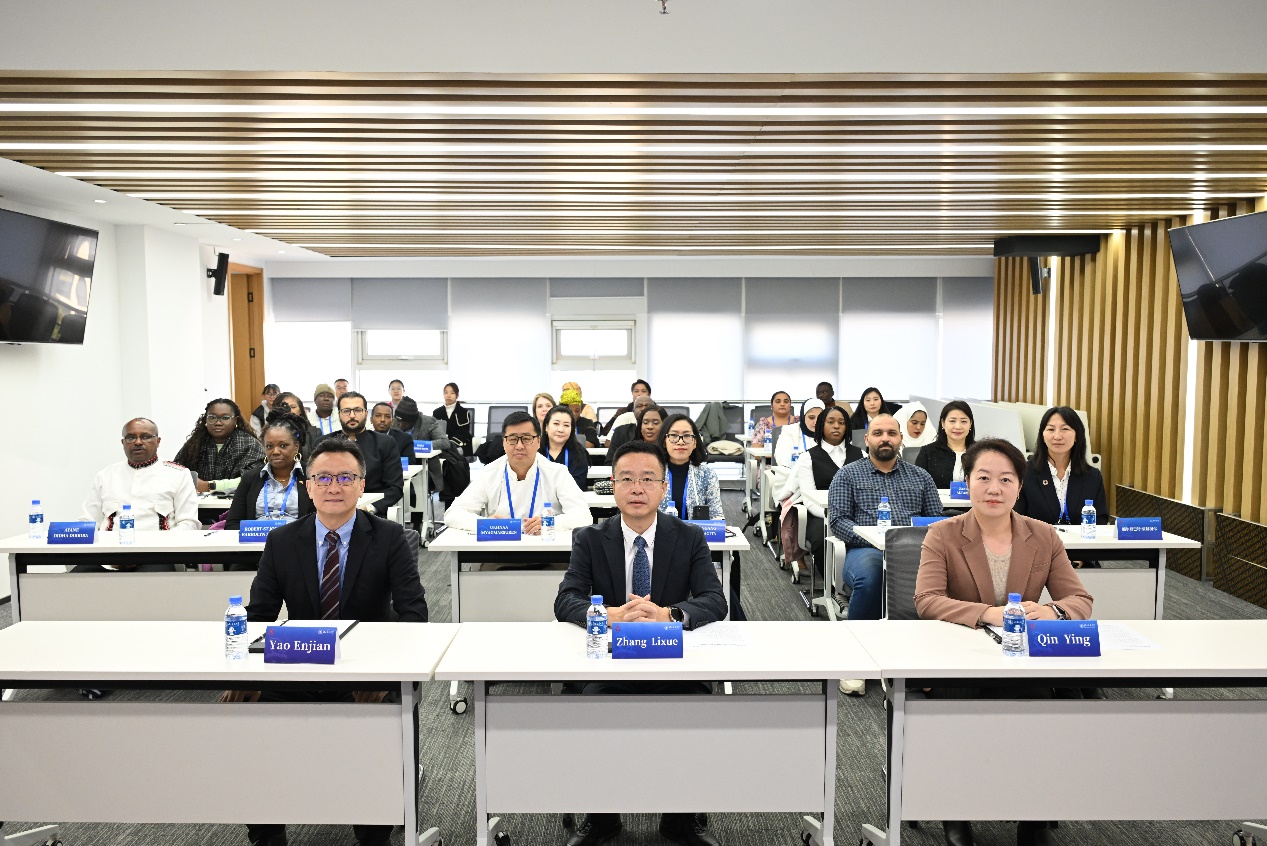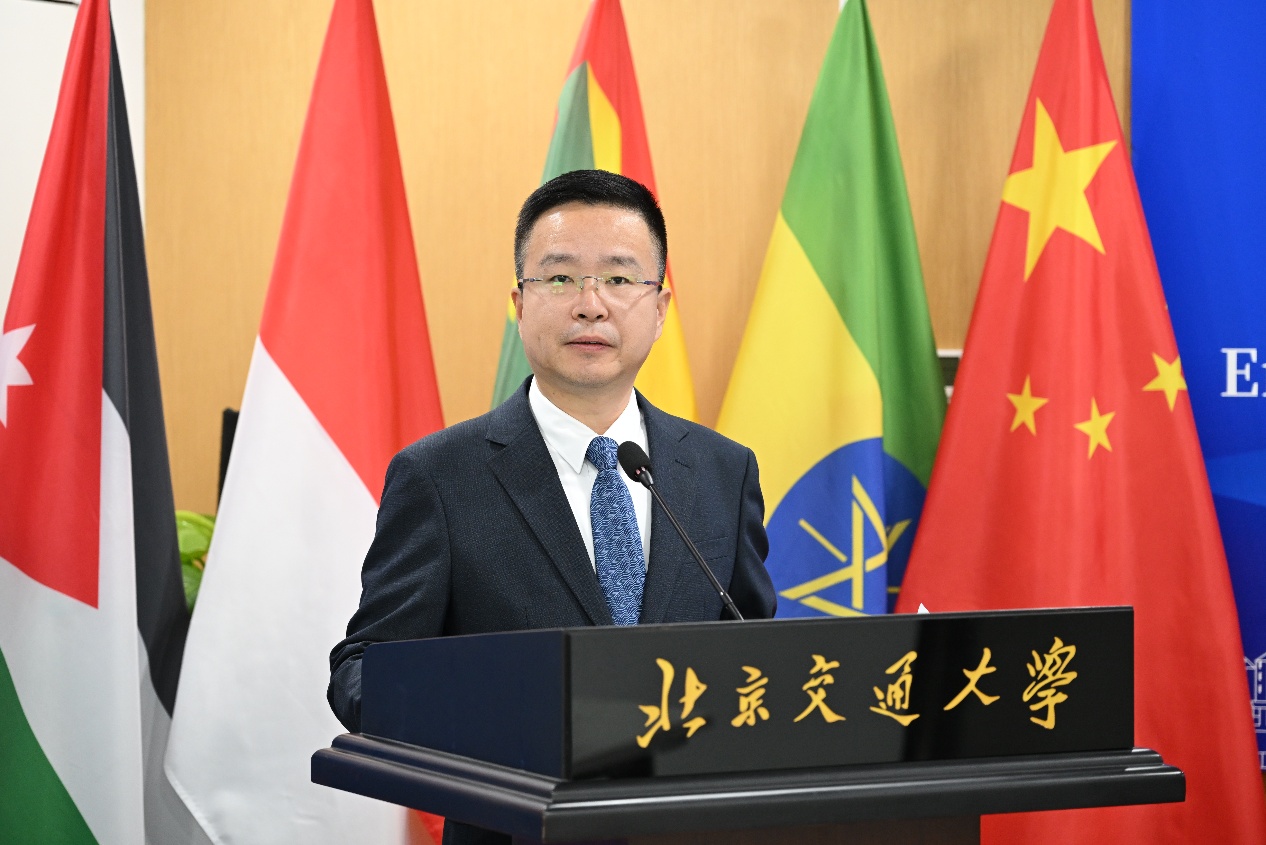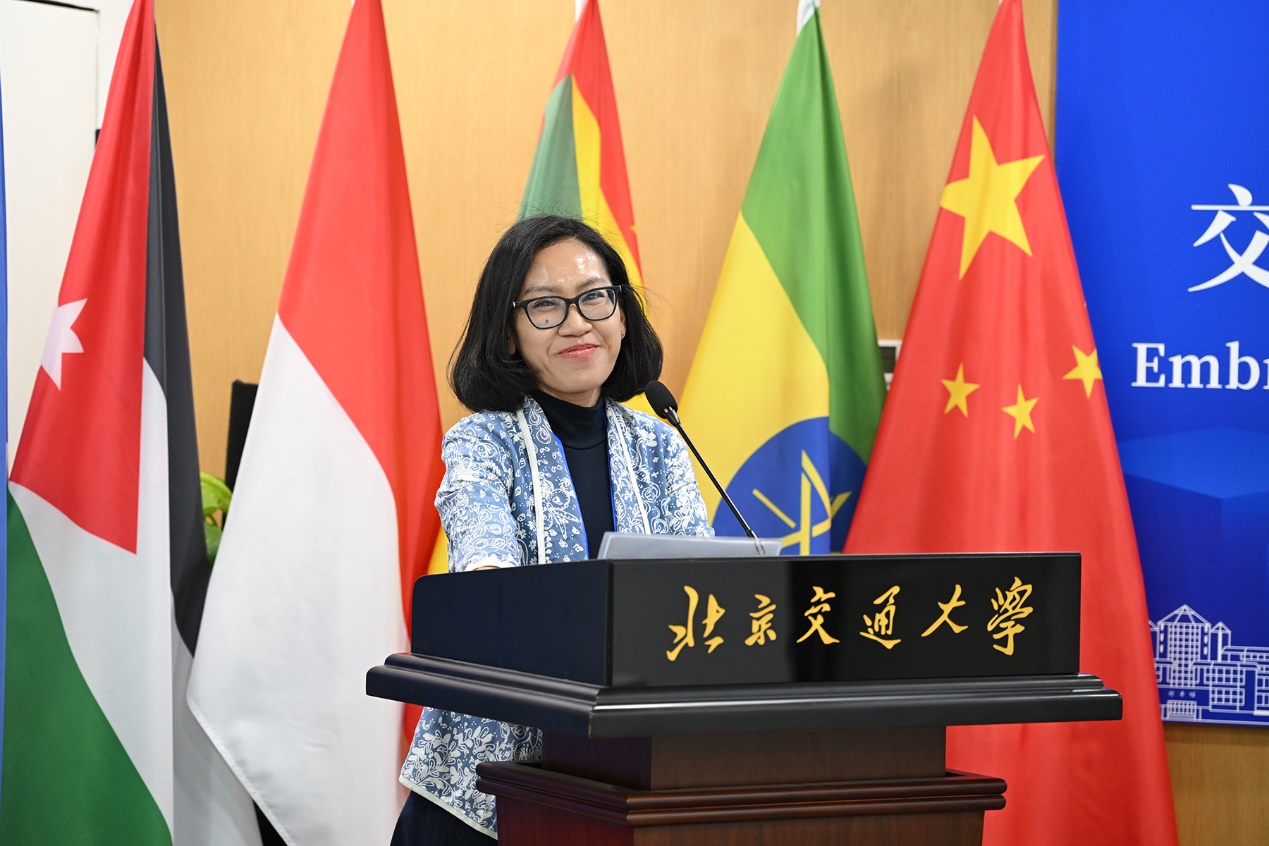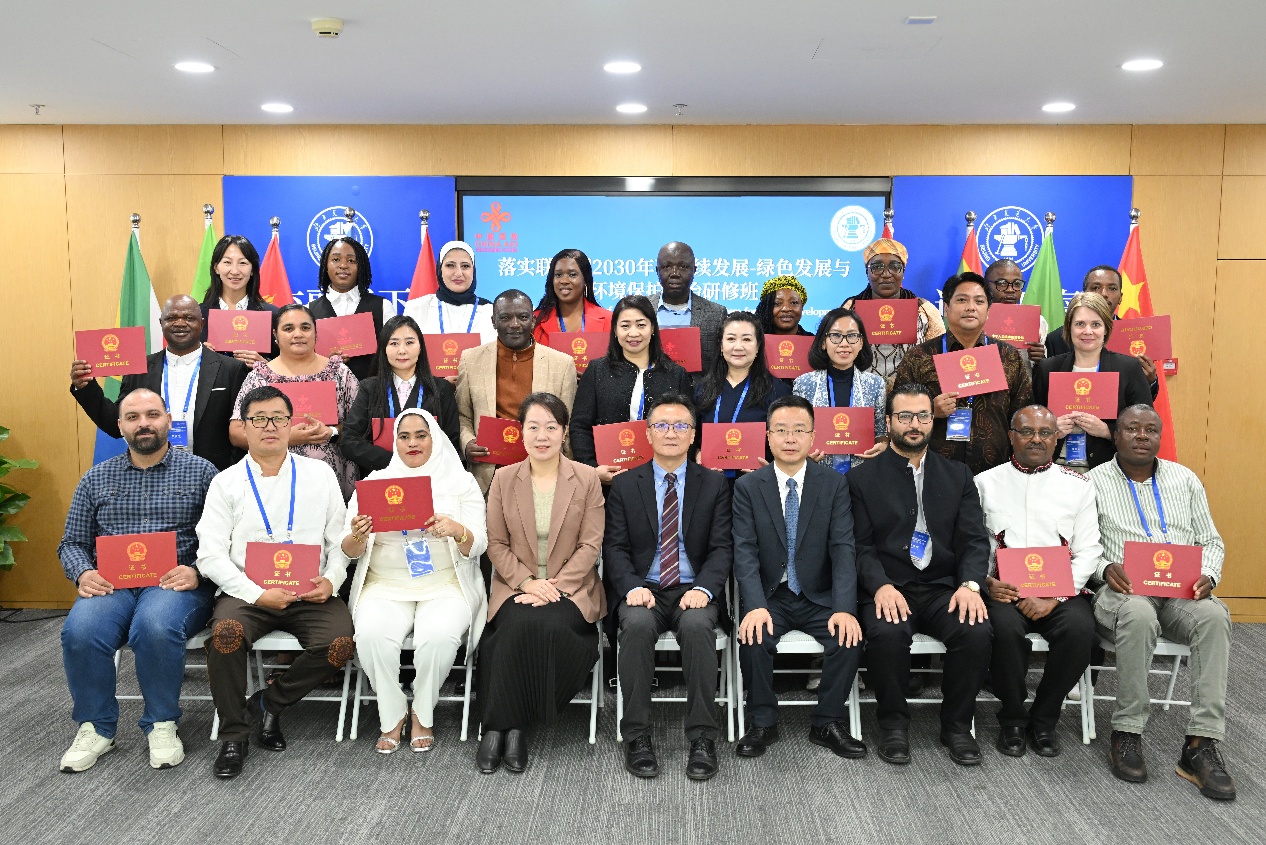date:2025-11-09

The closing ceremony of the “Seminar on Implementation of UN 2030 SDGs: Legal System for Green Development and Environmental Protection,” organized by the Ministry of Commerce and co-organized by the School of Law of Beijing Jiaotong University, was held at the University's Science and Technology Building. The event was attended by Yao Enjian, Dean of the International Education College, and Zhang Lixue, Party Secretary of the School of Law. Qin Ying, Deputy Party Secretary and Deputy Dean of the School of Law, presided over the closing ceremony.

Mr. Zhang Lixue, on behalf of the university, extended warm congratulations to all participants of the seminar on their successful completion of the seminar. He noted that through this training, the participants have gained a deeper understanding of China's legal framework for green environmental governance and the legal cooperation mechanisms for sustainable development among Belt and Road countries. He further expressed his hope that upon returning home, the participants would integrate the knowledge acquired into their own national governance practices, contribute collectively to advancing green development and environmental protection, and act as envoys of friendly cooperation among nations.

On behalf of all participants, Ms. Marinagita Sitanggang expressed sincere gratitude to the Ministry of Commerce of China, Beijing Jiaotong University, and all Chinese personnel involved in organizing the seminar. She emphasized that the seminar had effectively addressed emerging concepts regarding sustainable and high-quality development, noting that China's innovative practices and mature experience in balancing environmental protection with economic objectives—particularly in ensuring effective legal implementation and aligning local economic goals with national environmental targets—offered an invaluable reference model for enhancing governance frameworks for green development worldwide. Additionally, she acknowledged that the diverse cultural immersion activities had provided participants with a more comprehensive and profound understanding of Chinese culture.

The 14-day seminar brought together 27 officials from Ethiopia, South Africa, Grenada, Jordan, Mongolia, Micronesia, Indonesia, Sierra Leone, and other countries and regions. The curriculum systematically introduced China's environmental law and sustainable development policies, legal innovations and practical approaches in green and low-carbon development, as well as the pivotal role of legislation in addressing climate change and environmental protection. During the seminar, the delegation conducted field visits to representative sites including Goldwind Science & Technology's "Zero-Carbon Park," CRRC Datong Electric Locomotive Co., Ltd., and the Environmental and Resources Tribunal of the Intermediate People's Court of Xiong'an New Area. Through classroom instruction, on-site investigations, and cultural immersion activities, participants shared legal experiences in green development and environmental protection, thereby fostering exchanges and cooperation between China and multilateral partners in these critical areas.

